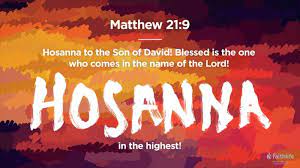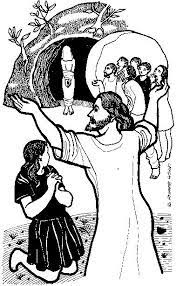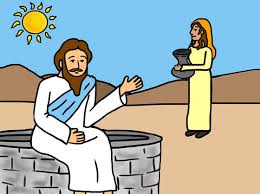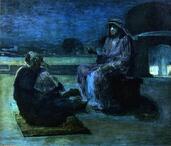Reflection: "Hosanna! (for now)"Have you ever seen a movie that is, in itself, a story - but also tells a story behind its story?
Many years ago, I went to see the movie Dr Zhivago - actually I went back 5 more times to see it. Each time, I saw more, and different, stories unfolding within the main plot. I think that the overriding message I received from all those visits to the movie theatre was: No matter how bad things seem and how much self-pity we may have for our predicament, there’s always someone worse off than ourselves, who needs our help. This story we read today from Matthew 21:1-11 should be familiar to most of us and it’s also told, with some minor differences, in the other 3 Gospels. Basically, it tells of Jesus’ arrival in Jerusalem, at the time of the Passover. It’s a requirement for all Jewish men to make a pilgrimage to this festival, at some time in their life. But we know that Jesus has a higher motive than this for his visit. The place is buzzing, and with more and more people having heard about Jesus, there’s an excited expectation in the air. Is he the Messiah, the one who’s come to free Israel from the Roman oppressors? They’re expecting a warrior king - but that’s not the message that Jesus brings them. Today, we’re going to look into some of the story behind the story. We’ll look at what some of the earlier prophets said about the coming of the Messiah – the Anointed One. To the Jews, the Messiah would be the one who would come at the “end of the days” and fulfil the following scriptural requirements. He would restore the line of King David, gather the exiles, restore the religious courts of justice, end wickedness, sin and heresy, reward the righteous, rebuild Jerusalem and restore the temple services. In Isaiah 11:2-5 we read that this Messiah would also be well-versed in Jewish law and observant of its commandments. He would be a charismatic leader, inspiring others to follow his example. He would be a great military leader, who would win battles for Israel. Jeremiah 33:15 tells us that He would be a great judge, who would make righteous decisions. But above all, he would be a human being, not a god, demi-god, or other supernatural being. To a lot of the Jews, especially the religious leaders, Jesus didn’t fit these criteria. But, in fact, he WAS the one they were waiting for and it’s a pity that they didn’t realise it at the time. However, if they had, it would have mucked up God’s masterplan – that the Son of Man had to die and be resurrected to new life to pay for the sins of the world? In verse 5 of today’s reading, we hear that Jesus came to them, gentle and riding on a donkey. This is lifted from Zechariah 9:9 “Rejoice greatly, Daughter Zion! Shout, Daughter Jerusalem! See, your king comes to you, righteous and victorious, lowly and riding on a donkey, on a colt, the foal of a donkey” We see that the early scriptures were pointing to the events that are unfolding before us in today’s story. The Jews were looking for a warrior king, but Zechariah 9 tells us that this king would be a king of peace. The crowds treated Jesus like a king when he arrived in Jerusalem. In verses 8 & 9 of today’s reading we hear that: “A very large crowd spread their cloaks on the road, while others cut branches from the trees and spread them on the road. The crowds that went ahead of him and those that followed shouted, “Hosanna to the Son of David!” (Hosanna is a Hebrew expression meaning “save us, help, we pray”, but can also mean “we praise you”) Back in the Old Testament, in Psalm 118:26, we read: “Blessed is he who comes in the name of the Lord!” “Hosanna in the highest heaven!” And in 2 Kings 9:3 we read: Then take the flask and pour the oil on his head and declare, ‘This is what the LORD says: I anoint you king over Israel.’” (do you remember Mary doing this to Jesus in Bethany?) And later in verse 13 of Matthew 21, we hear: “They quickly took their cloaks and spread them under him on the bare steps. Then they blew the trumpet and shouted, ‘Jehu is king!’ ” So, the actions of the people in Jerusalem, when Jesus entered, was symbolic of the welcome that they would afford a king, similar to what they had done for many hundreds, if not thousands, of years. This narrative portrays Jesus as a king and also defines the significance of his kingship. But because his kingship was so different from worldly models of authority, Jesus subverts the worldly understanding of kingship in suggesting a reign of a different order. Yes, he was announcing that he was indeed a king, but not the warrior-king they were looking for. The crowds honoured Jesus by casting their cloaks before him and, as mentioned in John’s gospel, waved palm branches. These were appropriate actions for the triumphal entries of kings into Jerusalem. But what an apparent disappointment it must have been to them to have their new king tried by their religious leaders and crucified by their oppressors – all within one week. Little did they realise that this crucifixion and subsequent resurrection would be the pinnacle of God’s plan for His son on earth. The religious leaders thought that they were driving the events of the Passion week, but remember that Jesus was not the helpless victim in this story. He was, in reality, in charge of the situation and he was all too aware of the outcome - of his own demise. He had said, “No man takes my life from me.... I lay it down of my own accord.” So, we await the passion of Jesus as it unfolds before us in the week to come. It must surely have been an extremely testing and trying time for Jesus – the culmination of his ministry on earth and the basis for the faith of those of us who are called Christians – that is, the disciples of the Christ. You don’t want to miss the next thrilling episodes, so I hope to see you all in the church at 9:30 on Good Friday and again on Easter Sunday. Pastor Rick
1 Comment
Reflection: |
Pastor
|
LANE COVE
|
Worship Service:9:30am Sunday
© Lane Cove Uniting Church | 2020
|







 RSS Feed
RSS Feed